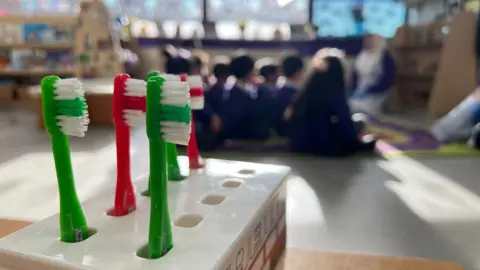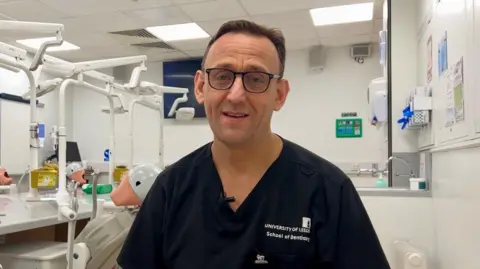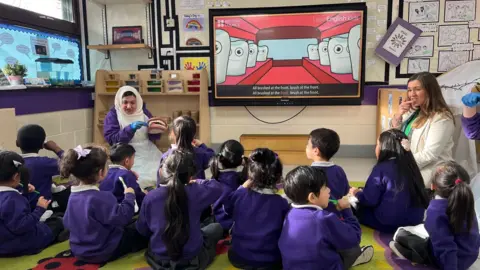Toothbrushing clubs in schools 'face barriers'
 BBC
BBCMore work is needed to overcome the barriers preventing some children accessing supervised toothbrushing sessions at schools and nurseries, a new report has found.
A survey carried out by the universities of Leeds and Sheffield found the number of children taking part in England was increasing – but funding and time pressure were preventing more programmes being set up.
The Labour Party made the introduction of supervised toothbrushing programmes for three-to-five-year-olds in the areas of greatest need a key election pledge before taking office last year.
The government said it would be announcing its plans "shortly" and described NHS dentistry as "broken".
The paper is the latest to be published by the BRUSH project, which is researching how to implement supervised toothbrushing programmes across England.
It found the number of programmes in April 2024 had increased by 28% in two years, while the number of children enrolled increased by 35%.
There are now 2,978 clubs, and 143,200 individuals aged 0-19 years taking part in them.

The report author, Prof Peter Day, said the study found "clear progress" in rolling out the programmes but that "more needed to be done".
"There are more children involved and more nurseries involved - but we've identified a few barriers, especially around funding, logistics and engagements with schools," he said.
"Only as we address those barriers can we really move forwards and widen the scheme to ensure the children who are most disadvantaged get the most benefit from it."
The report covers a period before the new government took office and Prof Day said the rollout would only "improve and increase" if Labour delivered on its election pledge.
About a quarter of five-year-old children in England have tooth decay, according to the most recent National Dental Epidemiology Programme in 2022.

Eastwood Community School in Keighley has been running a supervised toothbrushing programme for six-years.
After lunch the children in nursery, reception and year one are guided through a short toothbrushing session by a staff member.
Executive headteacher Suzanne Carter said a few years ago they were seeing children's teeth that looked like "apple cores" but now they were "in much better condition".
"It did take a bit of setting up – but once it's set up it runs itself," she said.
"If it's having that lasting impact on them and their families, and the NHS, then it's a small price for us to pay at three minutes a day."
A Department of Health and Social Care spokesperson said: "NHS dentistry is broken, too many children are growing up with tooth decay and not enough has been done to help children keep their teeth healthy.
"We will fix this, introducing supervised toothbrushing in early years settings and putting prevention at the heart of our plan to rebuild dentistry."
